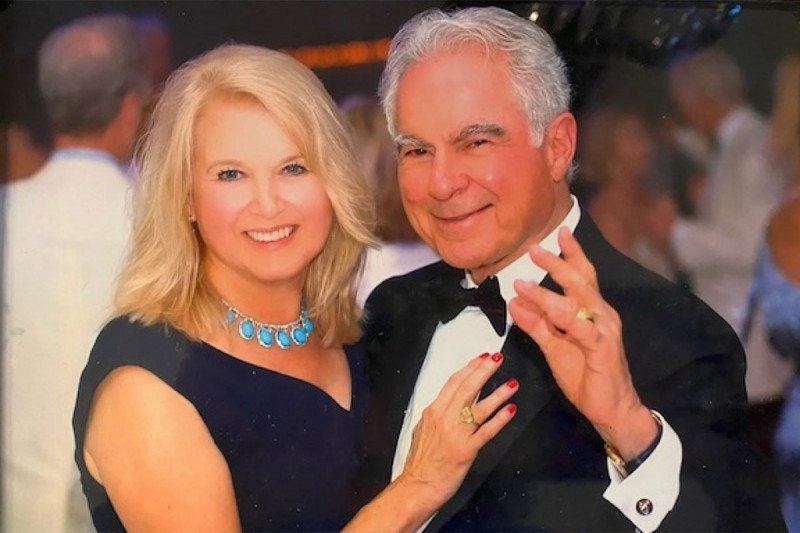
Alan Gerry has always recognized an opportunity when he sees one. His parents both emigrated from Russia to New York City in their youth so their families could build better lives. They met while working in a garment factory on the Lower East Side and soon married and had three boys. In 1930, when Mr. Gerry was two years old, the family moved two hours north of the city to Sullivan County to escape the polio epidemic. Ten years later, his family moved back to Manhattan, where Mr. Gerry discovered a new world: radio and television.
By the time Mr. Gerry was 12, he had built his first radio receiver. When he was 17, he dropped out of high school to join the Marines and was selected for a radar and electronics program. Following his discharge from the Marine Corps, he used the GI Bill to attend formal courses in radio and television repair. Then, at the age of 22, he opened his first television repair shop.

By the time he was 27, he had founded Liberty Video, which would become Cablevision Industries, the largest privately owned cable television company in the United States. Even though many people still listened to radios as their primary source of news and entertainment, Mr. Gerry recognized the opportunities of cable television. He went on to become a pioneering innovator in the industry.
His unparalleled ambition to build a brighter future led him to MSK.
In 2007, another opportunity presented itself when Alan and his wife, Sandra, met Joan Massagué of the Sloan Kettering Institute. Dr. Massagué was already established as one of the world’s leading researchers in metastasis — the spread of cancer — which is responsible for more than 90 percent of all cancer deaths. In the meeting, Mr. Gerry learned about the urgent need to address metastasis and the difficulties in treating patients with metastatic cancer who had run out of treatment options. He was compelled to become part of the solution: “As soon as I heard Joan Massagué speak about his work and goals for saving so many lives in the future through research, I knew we had to help move the needle.”
The results of that meeting revolutionized how metastasis is understood and treated, not just at MSK but around the world. After Alan and Sandra gave their first gift in 2007, ten years of unwavering support followed, and in 2017, the Alan and Sandra Gerry Metastasis and Tumor Ecosystems Center was named in their honor.
Your dollars will help MSK physician-scientists uncover the secrets of metastasis.
“Metastasis remains the number one challenge in cancer research today, and MSK is truly at the head of this field,” says Dr. Massagué, now Director of SKI. “The progress we’ve made at MSK has opened the door for massive discoveries in the coming decade, and Alan and Sandra are essential partners in this work. They have helped create the current environment of optimism.”
The Gerrys’ philanthropy also helped launch the Single Cell Research Initiative (SCRI) in 2017. The initiative is overseen by Dana Pe’er, Scientific Director of the Alan and Sandra Gerry Metastasis and Tumor Ecosystems Center. By using technologies to study cancer at the single-cell level, researchers have revealed a unique property that makes metastatic cells difficult to treat: a plasticity that allows them to take on different identities. Being able to assume another identity is one of the top reasons they are hard to outsmart. This key step in the process enables cancer cells to maneuver in the body and establish a new tumor site — making this discovery an important finding.
One of SCRI’s many ambitious projects, how to tackle brain tumor metastasis, is a collaborative effort by Dr. Pe’er, Dr. Massagué, and neuro-oncologist Adrienne Boire. This year, the joint research endeavor revealed that cancer cells use iron to spread to the cerebrospinal fluid and continue to grow there. With this ability, the cancer cells monopolize the iron, disabling the immune response that would normally destroy them. The team is now designing a clinical trial aimed at preventing cancer cells from accessing iron, which could potentially lead to new treatment options for patients.
Back in 2007, this level of understanding of metastasis was unimaginable to most. But the Gerrys and Dr. Massagué shared a vision. Thanks to their drive to succeed, the research initiatives the Gerrys supported have already extended the lives of many people living with cancer. And together with committed colleagues from across MSK, the Gerrys continue to build on their momentum and advance metastasis research, bringing renewed hope to patients everywhere.





